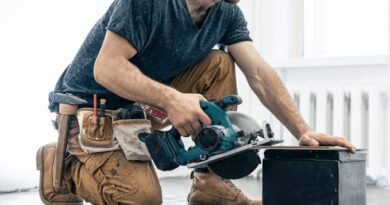Essential Homeowner Tips for Protecting Your Investment
Homeownership is one of the largest financial investments many people will make in their lifetime. A smart homeowner is aware of this and treats their property like the investment it is.
This often means keeping up with regular maintenance responsibilities. A new homeowners checklist can help to ensure that these tasks are done on a consistent basis. Consider a home warranty and be sure to understand the difference between homeowners warranty and insurance.
1. Get a Home Inspection
The journey to buying a home can be both exciting and overwhelming. It is important to remember that this is a major financial investment, and as such, you need to make sure that it is protected. The best way to do this is to get a home inspection.
A professional home inspector will be able to identify issues that you would have otherwise missed. This can save you money and stress in the long run. Additionally, it can also help you protect your safety by identifying any potential hazards.
A home inspector can also provide you with valuable information to use during the purchase process. This can help you negotiate the price of the property or even walk away from it entirely if necessary. By using a home inspection, you can ensure that your investment is protected in the future. For these reasons, getting a home inspection is an essential step for any first-time homebuyer.
2. Have Your Heating and Cooling System Checked
Homeownership is a major investment. As such, it should be treated like one. When you buy a car, you get regular tune-ups and maintenance to protect the value and functionality of your investment. You should also make sure to treat your home as an investment and perform regular maintenance to protect its value, keep you safe, and prevent costly repairs down the line. One of the most important things you can do to protect your investment is to have your heating and cooling system checked on a regular basis. Many of the costly, surprise repairs that many homeowners experience are a result of neglecting routine maintenance.
By having your HVAC system checked and maintained regularly, you will ensure it stays functional for as long as possible. This will save you time, money, and the hassle of dealing with unexpected problems down the road.
3. Install a Security System
A security system can add extra layers of protection to your home, providing peace of mind and a sense of safety. These systems can include motion sensors, smart locks, and other features. Some systems even feature lights that come on automatically in case someone approaches your property. This will help deter
criminal activity and keep your family safe at night.
A good home security system also comes with smoke detectors and carbon monoxide sensors, which can alert you to potential problems before they become dangerous. You can easily connect these sensors to a home monitoring system, making them easy for you and the proper authorities to access.
While some systems cost a little more than others, the value they provide can be worth it. Plus, you can often get a discount on your insurance if you install a security system. If you decide to sell your house, a full security system will be attractive to buyers and can help it fetch a higher price.
4. Hire a Home Inspector
One of the best ways to protect your investment is by hiring a home inspector before you buy a new home. These professionals will check the structure, roof, plumbing, ventilation system, electrical, and more to make sure you’re not buying a money pit. They will also spot issues that you might not be able to catch.
Even if the home is brand-new, it can still have problems due to human error or simply being overlooked by builders. Having an inspection done can help you save money in the long run and prevent costly repairs down the road.
When choosing a home inspector, look for referrals from real estate agents and family members. Search online ratings and reviews, as well. If possible, choose an inspector who is a member of a professional association, as these organizations have licensing requirements and hold their members to high standards. Ask the inspector for their membership ID and how often they attend continuing education classes to keep up with industry changes.




